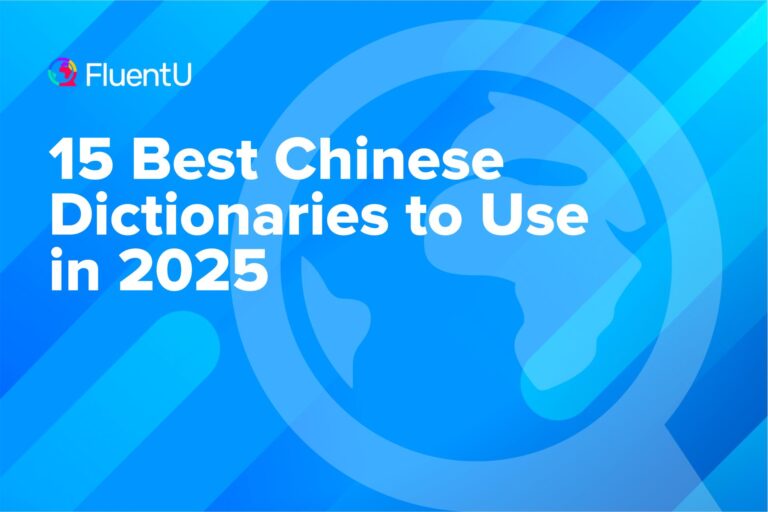6 Ways to Say Sorry in Chinese (and How to Respond to Apologies)

Saying sorry is important, though it’s not always the same between languages.
As a result, it’s only natural that learning how and when to say sorry in Mandarin Chinese is a high priority on a beginner’s checklist.
So let’s go over six essential phrases to say sorry in Chinese, when they should be used and exactly what they mean. You’ll also discover how to respond when you’re the recipient of the apology.
Download: This blog post is available as a convenient and portable PDF that you can take anywhere. Click here to get a copy. (Download)
How to Say Sorry in Chinese
不好意思 (bù hǎo yì si) — “Sorry about that”
The phrase 不好意思 literally means “not good meaning” and historically was used to mean “embarrassing.” In English, we can translate this phrase as “Sorry about that!” or “My bad!”
不好意思 is much more casual than the other phrases and is used to apologize for minor offenses. Because of this more casual nature, the following sentence would be one said to a friend or family member.
Example:
我来晚了,不好意思!
(wǒ lái wǎn le, bù hǎo yì si!)
I came late, sorry about that!
对不起 (duì bù qǐ) — “Sorry”
The most popular phrase for saying sorry in Chinese is 对不起. However, it shouldn’t be used as often as 不好意思 because it carries a bit more weight.
对不起 is used mostly in formal situations or for more serious offenses and mistakes. To understand how much more serious this phrase is, the literal translation in English is “unworthy.”
Thus, 对不起 should only be used in situations where you’re truly embarrassed or regretful and want to ask for forgiveness.
Examples:
这个房间太乱了,对不起。
(zhè ge fáng jiān tài luàn le, duì bù qǐ.)
This room is too messy, I’m sorry.
我忘了你的名字,真对不起。
(wǒ wàng le nǐ de míng zi, zhēn duì bù qǐ.)
I forgot your name, I’m so sorry.
我约会迟到了,对不起。
(wǒ yuē huì chí dào le, duì bù qǐ.)
I’m late for our date, I’m sorry.
抱歉 (bào qiàn) — “I sincerely apologize”
Unlike 对不起 and 不好意思, the word 抱歉 is used more like an adjective to describe how you feel.
This is the word you use when expressing how sorry you feel for someone, or if you’re apologizing to an authority figure and are begging for their forgiveness. In English, the literal meaning of 抱歉 is “to hold regret.”
Typically, 抱歉 is used in formal situations.
Examples:
我很抱歉听到这个消息!
(wǒ hěn bào qiàn tīng dào zhè ge xiāo xi!)
I’m so sorry to hear this news!
我开会迟到了,真抱歉!
(wǒ kāi huì chí dào le, zhēn bào qiàn!)
I was late for the meeting, sincere apologies!
是我的错 (shì wǒ de cuò) — “It’s my fault”
If you really want to impress native speakers with your Chinese skills, whip out the phrase 是我的错 the next time you need to admit to a mistake.
The phrase literally means “it’s my fault” or “it’s my mistake” and is used to admit one’s faults. In other words, use this phrase to take the blame for something that’s gone wrong.
But that’s not the only way 是我的错 is used. The phrase can also express empathy, and it’s used among friends and family.
Examples:
这个饭太难吃了,是我的错!
(zhè ge fàn tài nán chī le, shì wǒ de cuò!)
This food tastes so gross, it’s my fault!
你的椅子坏了,是我的错!
(nǐ de yǐ zi huài le, shì wǒ de cuò!)
Your chair is broken, it’s my fault!
我错了 (wǒ cuò le) — “I was wrong”
The word 错 (cuò) means “to be wrong” or “to make a mistake,” so this phrase literally means “I was wrong” or “I was mistaken.”
In Chinese, 我错了 is typically used by children when apologizing to parents, a girlfriend or boyfriend apologizing to their partner or a spouse apologizing to their spouse.
Similar to 是我的错, use the phrase 我错了 to take ownership of doing something wrong. It can also be used to admit being wrong in an argument.
Examples:
妈妈,今天我错了。
(mā ma, jīn tiān wǒ cuò le.)
Mom, I was wrong today/I made a mistake today.
我偷了你的钱包,我错了。
(wǒ tōu le nǐ de qián bāo, wǒ cuò le.)
I stole your wallet, I did wrong.
是我不对 (shì wǒ bù duì) — “It’s my bad”
The phrase 是我不对 literally means “I was not correct” and is used in similar situations as 我错了 and 是我的错.
It’s similar to saying “it’s my bad” or “that’s my fault” in English, and is used to express feeling regretful or guilty for making a mistake big or small.
Example:
那时候是我不对。
(nà shí hou shì wǒ bù duì.)
That time was my bad.
How to Respond When Someone Says Sorry in Chinese
Now you know how to say sorry in Chinese. But what about when someone says sorry to you?
Imagine if someone were to step on your foot, take up your time or spill orange juice on you in a café. They say sorry in Chinese, and you completely understand them!
…But you have no idea what to say back. Awkward!
Luckily, we’re here to save you from that dreadful situation. Learning how to respond to an apology is as easy as learning how to make one. Plus, each of these responses can be used interchangeably, as they don’t depend on formality.
没关系 (méi guān xi) — “It’s okay”
This is the most common response to an apology in Chinese and translates as “It’s okay.” It literally means “don’t lose face” and is most commonly paired with 对不起.
别担心 (bié dān xīn) — “Don’t worry about it”
Just like in English, a common response to an apology is to tell someone not to worry about it. The phrase literally means “don’t worry” and is used as a response to any of the six apologies.
没事 (méi shì) — “It’s nothing”
Another way we can translate this is “It’s not a big deal.”
没事 is a useful phrase to learn because it can also serve as a response to:
- 怎么了? (zěn me le?) — “What’s wrong?”
- 你今天做什么? (nǐ jīn tiān zuò shén me?) — “What did you do today?”
- 你没事吧? (nǐ méi shì ba?) — “Are you all right?”
算了吧 (suàn le ba) — “Forget about it”
If it’s not a big deal, let the person know they can forget about it with the phrase 算了吧.
When (and How Often) Should You Say Sorry in Chinese?
Believe it or not, Chinese speakers don’t always say sorry for the same things as English speakers do. While some of these situations make sense, others can leave learners confused about why they call for an apology.
Apologizing plays a crucial role in Chinese culture. Not only are apologies used to express regret and sympathy, but they’re also utilized to save face and keep relationships intact.
Here’s a list of situations where an apology is always needed when speaking Chinese:
- When you’re embarrassed about something. Sounds odd, right? Why would you need to say sorry if you’ve embarrassed yourself? Believe it or not, native English speakers do something similar.
In Chinese, saying sorry after an awkward or embarrassing situation is like saying “excuse me” in English. For example, if you invited a coworker to your house but didn’t have time to clean up, you’d say something along the lines of “Please excuse the mess.”
- When you feel sorry for someone. If someone just broke some bad news, such as one of their family members got sick or they just lost their job, it’s polite to express your sympathy with an apology. Just like in English, the appropriate response would be to say “I’m sorry to hear that.”
- When you’ve interrupted or bothered someone. It’s always wise to think before you speak, but in case you let your tongue slip when someone else is talking, say sorry. Additionally, if you’ve taken time out of someone’s day for a favor or to ask them a question, it’s common to apologize for using their time.
- When you’ve made a mistake (by accident or not). Finally, if you made a mistake, whether it’s by accident or on purpose, say you’re sorry. It’s as simple as that!
Congratulations!
You now know how to confidently say sorry in Chinese and respond to apologies given to you. But reading about these expressions and saying them out loud are two different things. Watch these expressions used by native Chinese speakers on FluentU to learn how to use them in actual conversations.
FluentU takes authentic videos—like music videos, movie trailers, news and inspiring talks—and turns them into personalized language learning lessons.
You can try FluentU for free for 2 weeks. Check out the website or download the iOS app or Android app.
P.S. Click here to take advantage of our current sale! (Expires at the end of this month.)
You’re also well on your way to impressing native speakers with a few colloquial yet meaningful apology phrases!
We hope you won’t have to use them very often, but when the time comes, consider yourself well-equipped.
Download: This blog post is available as a convenient and portable PDF that you can take anywhere. Click here to get a copy. (Download)
And One More Thing...
If you want to continue learning Chinese with interactive and authentic Chinese content, then you'll love FluentU.
FluentU naturally eases you into learning Chinese language. Native Chinese content comes within reach, and you'll learn Chinese as it's spoken in real life.
FluentU has a wide range of contemporary videos—like dramas, TV shows, commercials and music videos.
FluentU brings these native Chinese videos within reach via interactive captions. You can tap on any word to instantly look it up. All words have carefully written definitions and examples that will help you understand how a word is used. Tap to add words you'd like to review to a vocab list.
FluentU's Learn Mode turns every video into a language learning lesson. You can always swipe left or right to see more examples for the word you're learning.
The best part is that FluentU always keeps track of your vocabulary. It customizes quizzes to focus on areas that need attention and reminds you when it’s time to review what you’ve learned. You have a 100% personalized experience.
Start using the FluentU website on your computer or tablet or, better yet, download the FluentU app from the iTunes or Google Play store. Click here to take advantage of our current sale! (Expires at the end of this month.)











